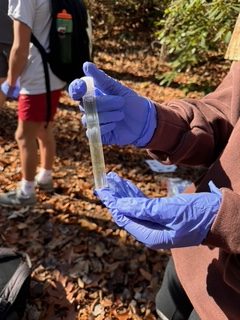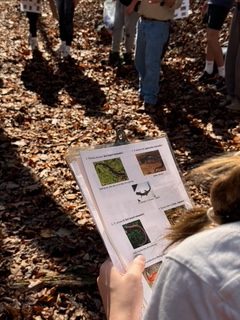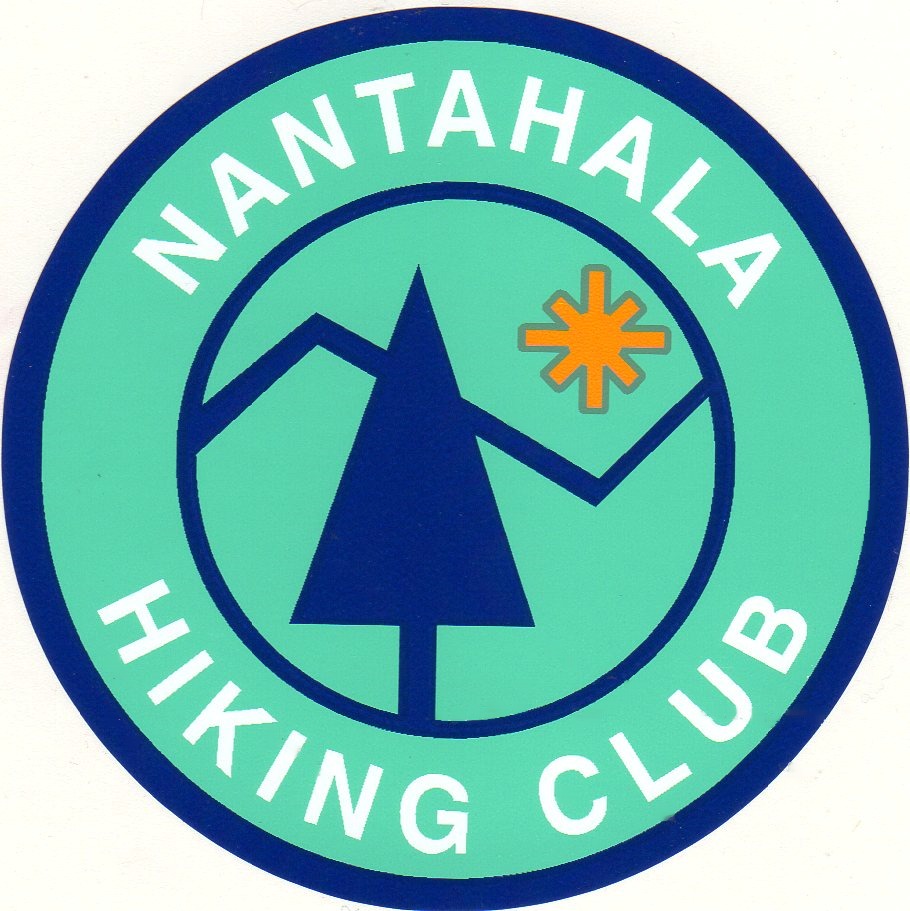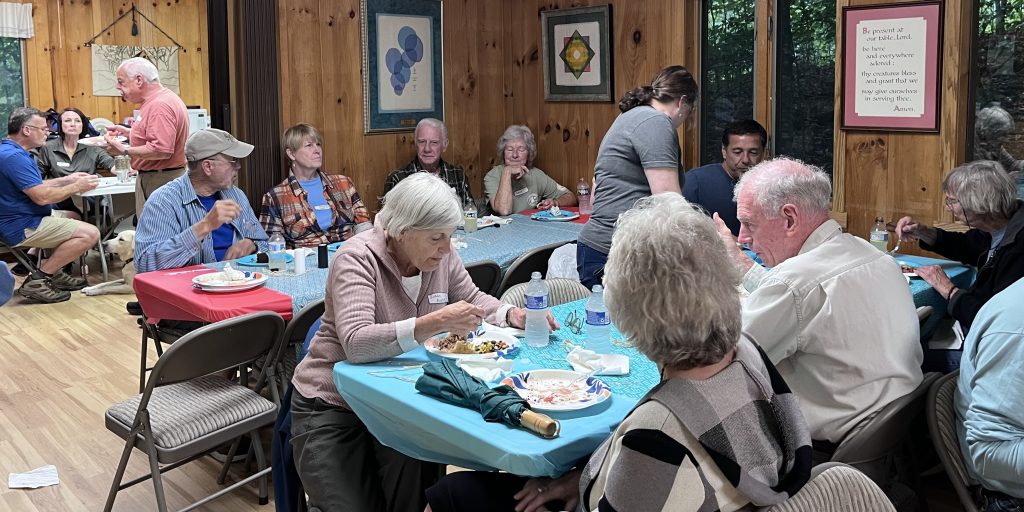By Marie Dunkle
Summit Charter School Outreach Volunteer
December 2024
Thirty 8th-graders and four adults from Summit Charter School in Cashiers recently took a field trip to various locations along the Appalachian Trail within the Nantahala Hiking Club’s maintenance area. The kids were organized into groups of four and given an identical assignment and tools to accomplish their assigned tasks.
A biologist from Highlands Biological Station joined us at the first testing site to help the students get on track concerning the organisms they were to look for. It was a beautiful fall day with clear skies and perfect temperatures for hiking to spring sites in the Standing Indian vicinity.
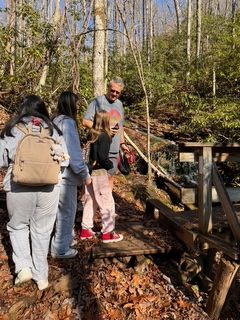
At the beginning of the trip, I spoke to the group about the NHC’s work and the history of the AT in our area. Their teacher, Janis Brannon, discussed Leave No Trace principles and safety rules. As we (Nicole Riley and I) hiked along with the group, we pointed out trail directional signs and some of the techniques NHC maintainers use to keep trails in good shape. We also did a little teaching about bear safety and showed an example of a bear box the club installed.
The purpose of the trip was to teach the students firsthand how to gauge the health of our mountain streams. Each team carried Neoprene gloves, cups to collect specimens, sampling tubes, species identification pictures, pH test strips for dissolved oxygen measurements, and a thermometer to check air and water temperatures.
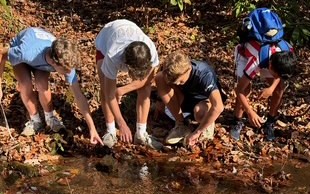
We visited 5 water sites: Winding Stair Gap, North Wallace Gap, Moore Creek 2nd Crossing, Betty’s Creek Gap, and Betty’s Creek Spring. At each site the kids happily carried out their testing assignments, recorded results, and explored the immediate area looking for the presence of organisms (critters) that would indicate the health of the water to support sensitive life like pouch snails, crayfish, and caddisfly. Information for each site was recorded by the students.
Back in the classroom, the data would be compared with data collected by previous classes in past years. We talked with the kids about factors that might cause changes in stream health from one year to the next, and they suggested that recent storms, new pollution sources, close-by camping activities, and climate change were some of those factors. Pretty astute I’d say!
We generally found the kids to be inquisitive, adventurous, focused on their assignments, and well behaved. It was fun talking with individual groups about both the citizen science they were carrying out and trail conditions and history. Eighth Grade is the best!
